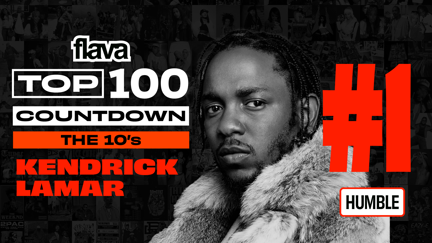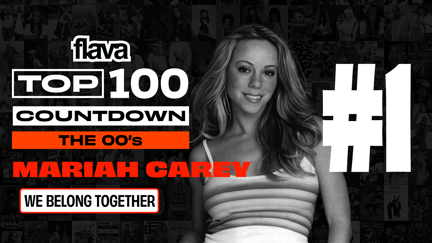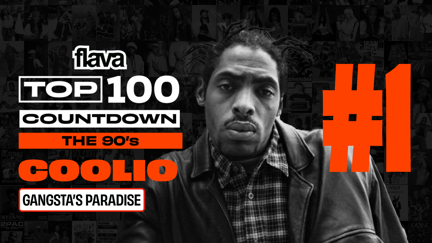53 Facts about Tupac!
- Publish date
- Friday, 14 Jun 2024, 3:56PM

As we celebrate what would have been Tupac Shakur's 53rd birthday, we're looking back at the life of a hip-hop legend who changed the game forever.
From his roots in East Harlem to his rise as a global icon, Tupac's story is all about breaking barriers, spitting powerful lyrics, and fighting for justice. Check out these 53 fascinating facts about Tupac, showing off his genius, unstoppable energy, and lasting legacy. Let's celebrate an artist who continues to inspire and empower new generations around the world. We’ll have 53 of his tracks playing this weekend – listen locally or the iHeartRADIO app.
- Tupac was born in East Harlem, New York City. Tupac Amaru Shakur was born in East Harlem, a neighbourhood known for its vibrant culture and diverse communities.
- His parents were both members of the Black Panther Party. Tupac’s parents, Afeni Shakur and Billy Garland, were activists and members of the Black Panther Party, a revolutionary organization fighting for civil rights.
- He was named after Túpac Amaru II, the 18th-century Peruvian revolutionary leader. Tupac Shakur’s name was inspired by Túpac Amaru II, who led an indigenous uprising against Spanish colonial rule in Peru.
- Tupac’s family moved to Baltimore, Maryland, when he was young. During his early childhood, Tupac and his family relocated to Baltimore, where he began to develop an interest in the arts.
- He attended the Baltimore School for the Arts. Tupac enrolled in the Baltimore School for the Arts, where he studied acting, poetry, jazz, ballet, and other creative disciplines.
- Tupac’s acting career started with a role in the film “Juice” (1992). His breakthrough in the film industry came with his role as Bishop, a troubled teenager, in the drama thriller “Juice”.
- He joined the hip-hop group Digital Underground as a backup dancer. Prior to launching his solo career, Tupac became a member of the hip-hop group Digital Underground, where he gained experience as a backup dancer and rapper.
- His debut solo album “2Pacalypse Now” was released in 1991. At the age of 20, Tupac released his first solo album, “2Pacalypse Now,” which showcased his socially conscious lyrics and poetic storytelling.
- Tupac was known for his outspokenness on social and political issues. Throughout his career, Tupac used his music and public platform to address topics such as racism, poverty, police brutality, and the struggles faced by marginalized communities.
- He starred in several successful films, including “Poetic Justice” (1993) and “Above the Rim” (1994). Tupac’s acting prowess shone in films such as “Poetic Justice,” where he starred alongside Janet Jackson, and “Above the Rim,” a sports drama.
- Shakur’s mother founded the Tupac Amaru Shakur Foundation after his death. Following Tupac’s untimely death, his mother, Afeni Shakur, established the Tupac Amaru Shakur Foundation to honor his memory and support arts and education initiatives.
- Tupac’s iconic “Thug Life” tattoo became a symbol of his philosophy. The tattoo across Tupac’s abdomen, which read “Thug Life,” represented his belief in living with resilience and standing up against social injustice.
- He had a close friendship with actress Jada Pinkett Smith. Tupac and Jada Pinkett Smith, the wife of actor Will Smith, shared a deep friendship formed during their time at the Baltimore School for the Arts.
- The song “Dear Mama” is a heartfelt tribute to his mother. One of Tupac’s most beloved tracks, “Dear Mama,” was a heartfelt homage to his mother, Afeni Shakur, expressing his gratitude and love for her unwavering support.
- Tupac was involved in a highly publicized feud with The Notorious B.I.G. The rivalry between Tupac Shakur and The Notorious B.I.G., also known as Biggie Smalls, intensified after Tupac was shot multiple times in New York City.
- He was shot and killed in Las Vegas on September 7, 1996. Tupac’s life was tragically cut short when he was shot multiple times in a drive-by shooting in Las Vegas. He passed away on September 13, 1996, at the age of 25.
- Numerous conspiracy theories surround Tupac’s death. The circumstances surrounding Tupac’s death have sparked various conspiracy theories, with many speculating about the involvement of rival artists or even government agencies.
- His posthumous albums sold millions of copies. Even after his death, Tupac’s music continued to resonate with fans worldwide, and posthumously released albums like “All Eyez on Me” and “The Don Killuminati: The 7 Day Theory” achieved tremendous commercial success.
- He was nominated for multiple Grammy Awards. Tupac received several Grammy Award nominations throughout his career, recognizing his artistic contributions to the hip-hop genre.
- Shakur’s influence on hip-hop is undeniable. Tupac’s impact on the hip-hop industry is immeasurable, as he used his music to shed light on social issues and inspire a generation of artists.
- His lyrics often reflected the struggles of the inner-city youth. Tupac’s introspective and poignant lyrics explored the harsh realities faced by impoverished communities, resonating with those who could relate to his experiences.
- He was the first solo rapper to enter the Rock and Roll Hall of Fame. In 2017, Tupac Shakur became the first solo rapper to be inducted into the prestigious Rock and Roll Hall of Fame, solidifying his status as a music icon.
- Shakur’s poetry collection was published posthumously. After Tupac’s passing, a collection of his poetry titled “The Rose That Grew from Concrete” was published, offering deeper insight into his creativity and thought processes.
- Tupac had a strong affinity for Shakespeare. Tupac admired William Shakespeare and found inspiration in his works, often integrating references to the playwright’s themes and characters in his own music.
- He was a vocal advocate for the empowerment of African Americans. Tupac believed in the importance of uplifting the African American community, using his platform to encourage self-awareness and social change.
- Shakur’s estate continues to release new music and documentaries. Even after his death, Tupac’s music and legacy live on through the ongoing release of unreleased tracks and documentaries about his life and influence.
- He was a talented poet, often incorporating spoken word elements into his music. Tupac showcased his poetic abilities through his music, seamlessly blending rap and spoken word to create a unique and powerful artistic expression.
- Tupac’s love for his fans was evident in his performances. Known for his energetic and passionate stage presence, Tupac always aimed to connect with his audience and make them feel acknowledged and appreciated.
- His iconic bandana tied around his head became a signature fashion statement. Tupac’s sense of style, including his trademark bandana worn as a headband, influenced fashion trends in the 1990s and beyond.
- He released multiple successful albums during his career. Tupac’s discography includes several critically acclaimed albums, such as “Me Against the World,” “Strictly 4 My N.I.G.G.A.Z.,” and “The Don Killuminati: The 7 Day Theory.”
- Tupac was known for his multi-dimensional storytelling in his music. Through his powerful storytelling abilities, Tupac painted vivid pictures and shared narratives that touched the hearts of listeners around the world.
- He showed support for marginalized communities through his philanthropy. Tupac’s philanthropic efforts included supporting organizations dedicated to empowering impoverished communities and providing opportunities for underprivileged individuals.
- Shakur was vigilant about his personal safety. Being involved in several altercations and incidents, Tupac became increasingly aware of the dangers that came with his fame and took measures to protect himself.
- He was an accomplished poet from a young age. Tupac’s talent for poetry was evident from a young age, and he began writing and performing his own poetry by the age of twelve.
- Tupac’s lyrics often addressed the flaws and corruption in society. With lyrics that dissected social issues and called for change, Tupac fearlessly confronted the systemic problems plaguing society.
- His songs continue to inspire new generations of artists. Tupac’s influence extends beyond his time, inspiring countless artists who continue to carry his legacy and deliver socially conscious music.
- Shakur was an advocate for promoting unity among East and West Coast rappers. Tupac aimed to bridge the gap between East and West Coast rap scenes, advocating for unity and dismissing the idea of an ongoing rivalry.
- He had a strict work ethic and recorded an extensive amount of music. Tupac’s dedication to his craft led him to record an extensive amount of music, resulting in a vast catalog of unreleased material.
- He was known for his charismatic and magnetic personality. Tupac’s charm and magnetic energy allowed him to effortlessly draw people towards him, leaving a lasting impression on those who encountered him.
- 2Pac’s impact extends beyond music, influencing art, fashion, and popular culture. Tupac’s influence transcends the realm of music, permeating art, fashion, and pop culture, shaping the landscape of the 1990s and beyond.
- He had a complicated relationship with the media. Tupac often felt misrepresented by the media and expressed frustration with the way his image and words were distorted, leading to misunderstandings.
- Shakur’s lyrics were poetic, poignant, and deeply personal. Tupac’s lyrical prowess allowed him to express his innermost thoughts and emotions with poetic grace, leaving a profound impact on listeners.
- He starred in the film “Gridlock’d” alongside Tim Roth. In “Gridlock’d,” Tupac played the lead role of Ezekiel “Spoon” Whitmore, showcasing his versatility as an actor.
- Tupac is one of the best-selling music artists of all time. With over 75 million records sold worldwide, Tupac remains one of the best-selling music artists in history.
- He frequently collaborated with other iconic artists. Tupac collaborated with numerous renowned artists, including Snoop Dogg, Dr. Dre, and Eric B. & Rakim, creating timeless tracks that still resonate with fans today.
- Shakur’s music touched on the struggles of the African American community. Tupac used his platform to shed light on the injustices faced by the African American community, giving a voice to the voiceless.
- Tupac Shakur’s legacy continues to inspire and empower. Despite his untimely death, Tupac’s impact on music, culture, and social activism continues to inspire and empower generations to rise above adversity and fight for a better world.
- He Auditioned for a Role in "Star Wars". Tupac auditioned for the role of Mace Windu in "Star Wars: Episode I – The Phantom Menace," a part that eventually went to Samuel L. Jackson.
- Close Friendship with Jim Carrey. Tupac and actor Jim Carrey developed a friendship while Tupac was in prison. Carrey would send letters to Tupac to help lift his spirits during his incarceration.
- Personal Journals. Tupac kept detailed journals throughout his life, which contained not only lyrics and poems but also his thoughts on a wide range of subjects, from personal struggles to socio-political issues.
- Photography Interest. Tupac had a keen interest in photography and often carried a camera with him. He enjoyed capturing moments from his life and the people around him.
- His Alias "MC New York". Before he became famous as Tupac, he initially performed under the alias "MC New York" when he started his rap career. This stage name was a nod to his New York roots before he transitioned to using his given name.
- Keep Ya Head Up. In "Keep Ya Head Up," Tupac addresses gender inequality and encourages women to remain strong despite adversity.
Take your Radio, Podcasts and Music with you




